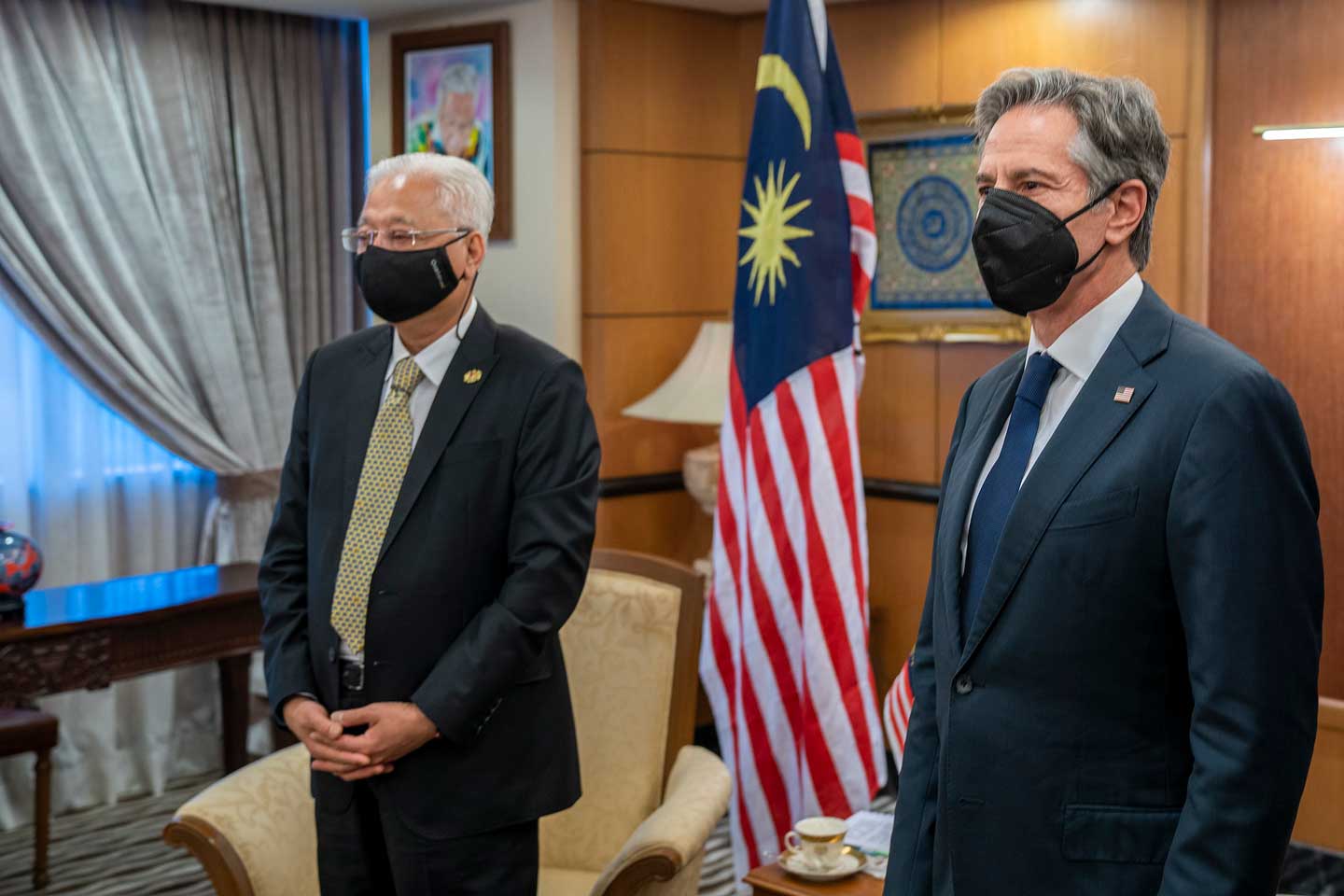The BGA Malaysia team, led by Managing Director Hazree Mohd Turee, penned a client update on the naming of Ismail Sabri Yaakob as Malaysia’s new prime minister which took place August 20. The update examined the background behind the leadership change and the return to power of the United Malay National Organization (UMNO) and looked ahead to examine what it might mean for the country’s economy and domestic politics.
Context
Ismail Sabri Yaakob was named Malaysia’s ninth prime minister on August 20. Ismail Sabri was endorsed by 114 out of 220 members of Parliament (MPs) — three more than the 111-majority needed – after Prime Minister Muhyiddin Yassin had resigned.
There was initial opposition to Ismail’s candidacy, but UMNO leaders managed to set aside their differences. Ismail had resisted calls from within UMNO to leave the ruling Perikatan Nasional (PN) coalition and had continued supporting then-Prime Minister Muhyiddin. Ismail became UMNO’s candidate for prime minister after party president Ahmad Zahid Hamidi withdrew his name for consideration and UMNO leaders set aside their differences to stand behind Ismail as the more unifying candidate.
Significance
Ismail’s appointment sees UMNO return to helm the country after former Prime Minister Najib Razak lost the 2018 general election in the wake of a corruption scandal. PN Chairman and ex-premier Muhyiddin has said some of his MPs would back Ismail on the condition that he not appoint ministers facing criminal charges if he comes to power.
Ismail, who was the deputy prime minister and defense minister in the previous PN government, has had limited international exposure, but the leadership change bears careful watching for companies looking at the country’s domestic and foreign policy orientation. He will likely rely on career diplomats and civil servants to chart Malaysia’s foreign affairs and trade policy.
Implications
The focus will now shift on to how Ismail might reshape policy as well as the introduction of other personnel changes. As UMNO vice-president and the first prime minister from the party who is not its leader, he is expected to introduce and maintain Malay-centric populist policies to keep his allies and consolidate his leadership position in UMNO. There is already speculation about other posts including deputy prime minister as well as specific cabinet positions.
Uncertainty continues to cloud the country’s political landscape. Ismail must prove his support in Parliament through a confidence vote when parliament resumes sitting. Ismail may choose to serve out the remaining parliamentary term that is slated to end in July 2023, but he will likely be under pressure to call an earlier general election.
Opposition dynamics could show signs of shifting. In particular, given that Anwar Ibrahim once again failed to get enough votes to become premier – with only 100 MPs on his side – leaders within his own People’s Justice Party (PKR) and its coalition partners in Pakatan Harapan (PH) are starting to consider asking Anwar to take a step back and allow another leader to take the reins, though it is unlikely he will want to do so.
BGA will continue to update you on important developments in Malaysia as they unfold. If you would like further information or insight or if you have any comments or questions, please contact BGA Malaysia Managing Director Hazree Turee at hturee@bowergroupasia.com.

























